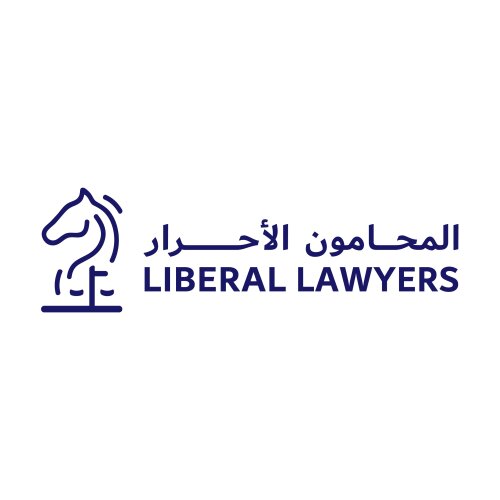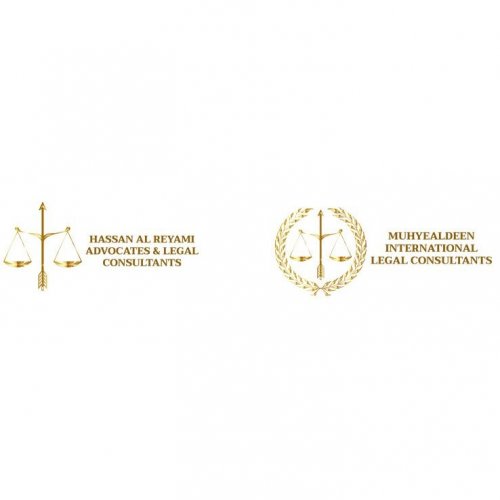Best Legal Document Lawyers in Abu Dhabi
Share your needs with us, get contacted by law firms.
Free. Takes 2 min.
List of the best lawyers in Abu Dhabi, United Arab Emirates
About Legal Document Law in Abu Dhabi, United Arab Emirates
In Abu Dhabi, United Arab Emirates (UAE), the requisites of legal documents are heavily governed by the region's robust legal system. These range from simple documents such as rent and labor contracts to complex regulatory documents used in the financial or business sector. In general, legal documents in Abu Dhabi are required to be in Arabic with a valid translation in other languages. Furthermore, many public transactions and legal processes necessitate attested and notarized documents.
Why You May Need a Lawyer
Legal documentation in Abu Dhabi is crucial, requiring highly professional expertise. For property transfers, starting a new business, or resolving legal disputes, the robust and complex framework of Abu Dhabi's legal system requires the help of an experienced lawyer. A lawyer specializing in legal document laws can help in drafting, reviewing, understanding the legal implications, and enforcing various types of agreements or contracts. They can provide legal recommendations, minimize the potential risks, and ensure all legal requirements are met.
Local Laws Overview
The local laws in Abu Dhabi surrounding legal documents are strict and thorough. All legal documents should be in Arabic or have an Arabic counterpart. Documents intended for use outside the UAE must undergo a strict process called legalization, a series of authentications to validate the document for international acceptance. Additionally, some documents also require a witness during the signing process. These laws are put in place to ensure the document's authenticity, thus protecting the interests of all parties involved.
Frequently Asked Questions
1. Can a foreigner execute a legal document in English?
Yes, but the document must also be translated into Arabic. The UAE authorities require legal documents to bear an Arabic version or be accompanied by an Arabic translation.
2. What happens if the legal document is notarized?
A notarized document in Abu Dhabi adds a layer of authenticity. It ensures that the signatures that appear on the document are legitimate and the parties described are real. It can serve as strong evidence in court matters.
3. How is a document attested in Abu Dhabi?
A document is attested by getting it stamped by the relevant authority of Abu Dhabi. Depending on the document type, this could be a Government Office, Notary Public or a lawyer.
4. Can I draft my own legal document?
Yes, technically, but it is advisable to seek the help of a legal expert because of the complex nature of Abu Dhabi's legal system. Using an experienced lawyer minimizes risks and ensures all the legal standards are met for your peace of mind.
5. Can a legal document be voided or cancelled?
Yes, a legal document can be voided or cancelled under certain conditions. Each case varies and will be subject to the prevailing law or agreement between parties. Always seek legal advice in such situations.
Additional Resources
You may consider contacting Abu Dhabi Judicial Department (ADJD) or any recognized law firm for any further clarifications regarding legal documents. Abu Dhabi's Government official website and the UAE Government Portal provide further insightful knowledge regarding various regulations related to legal documents.
Next Steps
If you are dealing with any matter requiring legal documentation, hiring a knowledgeable attorney or lawyer in Abu Dhabi is advisable. The legal expert can guide you through drafting, reviewing, attesting, notarizing and understanding the implications of any legal document, ensuring that your interests are well protected.
Lawzana helps you find the best lawyers and law firms in Abu Dhabi through a curated and pre-screened list of qualified legal professionals. Our platform offers rankings and detailed profiles of attorneys and law firms, allowing you to compare based on practice areas, including Legal Document, experience, and client feedback.
Each profile includes a description of the firm's areas of practice, client reviews, team members and partners, year of establishment, spoken languages, office locations, contact information, social media presence, and any published articles or resources. Most firms on our platform speak English and are experienced in both local and international legal matters.
Get a quote from top-rated law firms in Abu Dhabi, United Arab Emirates — quickly, securely, and without unnecessary hassle.
Disclaimer:
The information provided on this page is for general informational purposes only and does not constitute legal advice. While we strive to ensure the accuracy and relevance of the content, legal information may change over time, and interpretations of the law can vary. You should always consult with a qualified legal professional for advice specific to your situation.
We disclaim all liability for actions taken or not taken based on the content of this page. If you believe any information is incorrect or outdated, please contact us, and we will review and update it where appropriate.

















